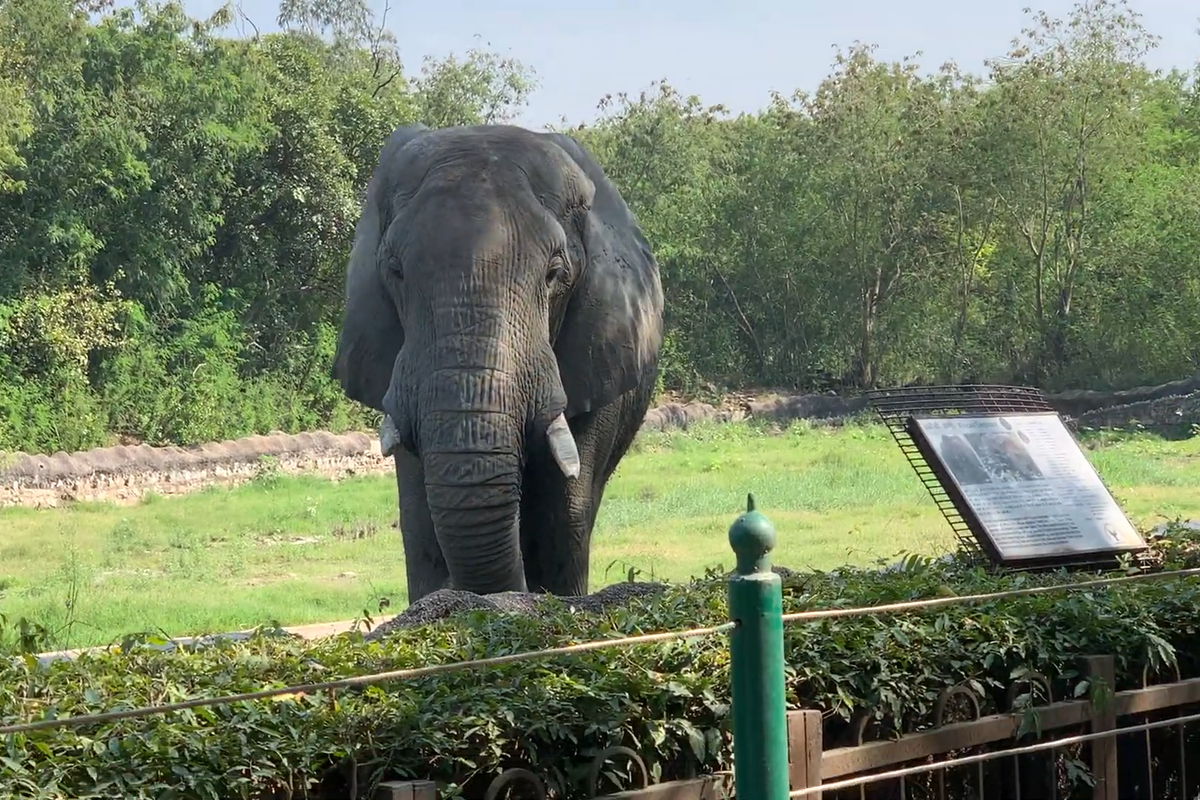Copyright independent

An African elephant who lived in isolation for over a decade in a zoo in Indiadied of a rare rodent-borne virus, an autopsy report revealed. Shankar, the 29-year-old elephant, is said to have died in September from the encephalomyocarditis virus (EMCV) that can infect a wide range of animals, causing sudden death due to heart and brain inflammation, officials said. Dr Sanjeet Kumar, director of the zoo in India’s capital Delhi, where the elephant was housed, confirmed that the post-mortem report was positive for EMCV, calling it an acute disease with no visible symptoms. “There have been some cases previously found in European zoos and other zoos globally. Generally, it infects pigs, but a wide variety of zoo animals can be affected including big cats and several lesser-known species,” Dr Kumar told The Indian Express. The African bull elephant was brought from Zimbabwe to India in November 1998 as a diplomatic gift from the country to then president Shankar Dayal Sharma. He had been living alone since his companion died in 2021. He was temporarily lodged with the Asian elephants in the zoo, but that living arrangement did not work out. Despite a 2009 federal ban on keeping elephants in zoos, Shankar was moved to a new enclosure in 2012 where he spent much of his life alone. For years activists rallied for Shankar to be removed from the zoo to a sanctuary. Zoo authorities previously said Shankar died on 17 September after showing mild symptoms on the same day. It said Shankar was eating fewer leaves and grass, passing loose stool, but consumed fruits and vegetables. “Treatment was given by the veterinary team and the animal was under observation of the animal keeping staff,” the official statement by the zoo said. However, he collapsed at around 7.25pm inside his enclosure and died at 8pm while receiving emergency treatment. “There was no report of sickness or abnormal behaviour till September 16,” Dr Kumar said at that time. The ministry of environment, forest and climate change ordered an investigation to ascertain the cause of the death. Dr Kumar said EMCV is transmitted through rodents, but controlling them in open enclosures remains a challenge. “Generally, rodents are there, roaming here and there, and it is difficult to control them,” he said. “There is no accumulated food in the elephant enclosure – rodents only go where there is meat or feed left for two or three hours at night. The elephant only gets leaves or grasses, and only in the afternoon it gets concentrate,” he added. The virus was first found in a Gibbon in Florida in 1945 with local outbreaks reported across the world in 1970s. In India, the virus was first isolated in the end of 1960s and Shankar’s was the first ever “recorded” death caused by the virus, a senior official at the Indian Veterinary Research Institute (IVRI), which conducted the autopsy of the elephant and released the report, told the BBC. "There may have been unreported instances of mammals dying because of EMCV," the official said. The zoo has remained closed since it was closed in August due to an avian influenza outbreak. The only remaining African elephant in India is a male named Richie, living at the Mysuru Zoo in the southern Karnataka state.



